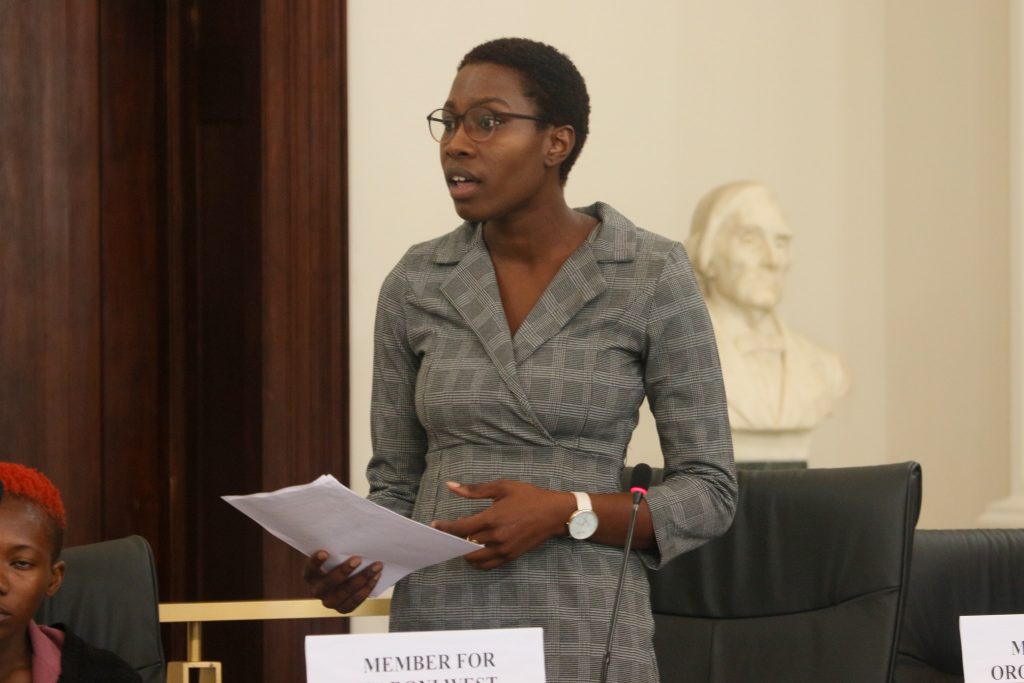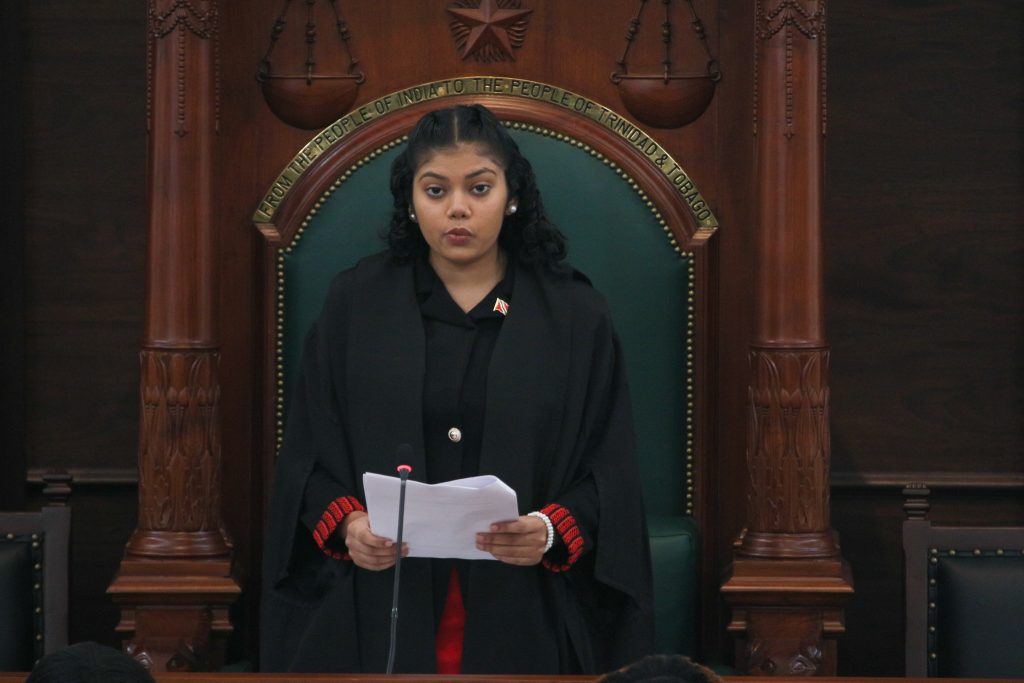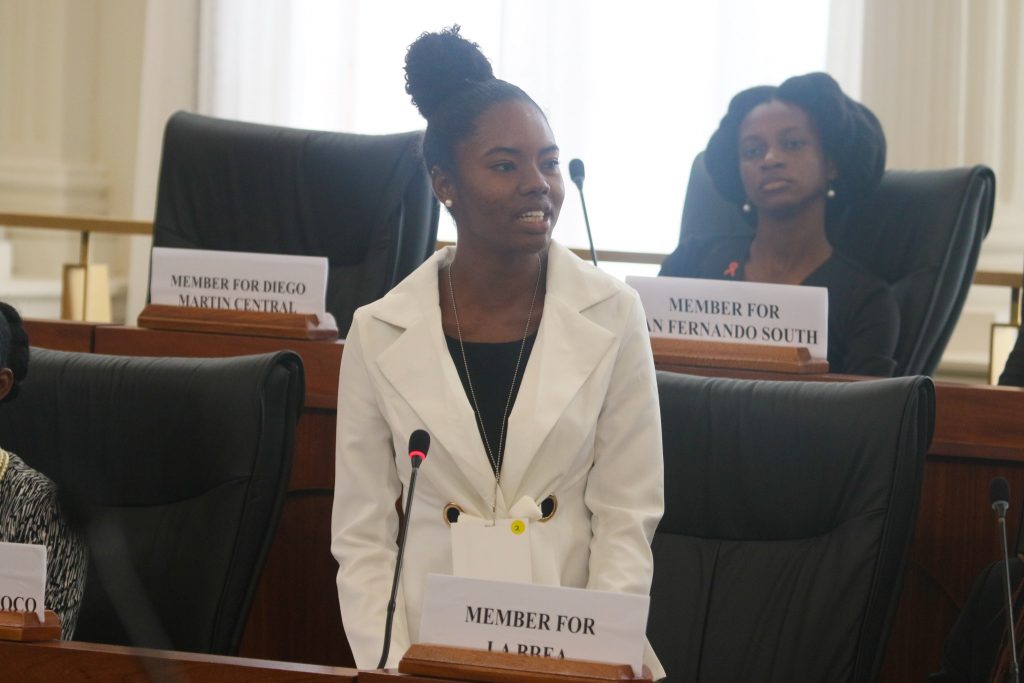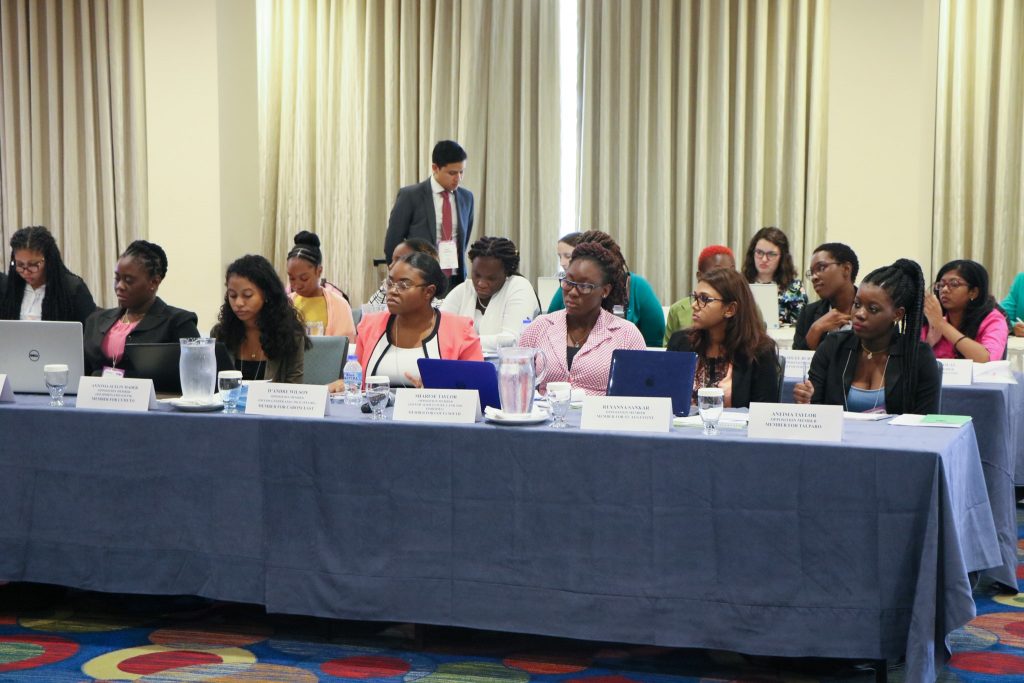Giving voice to tomorrow’s female leaders

The local chapter of Caribbean Women in Leadership TT (CIWILTT) is out to amplify the voices of local women.
It aims to do so through its initiatives such as Young Women in Leadership (YWIL).
One of the components of that initiative is an all-female parliamentary sitting.
The chapter’s chair, Ashlee Burnett, said YWIL is designed to encourage young women and girls to enter leadership positions and have a say in making the decisions that affect their lives.
“In October and November we will be hosting training sessions with participants on topics including gender and good governance, parliamentary practice, mental health and transformational leadership. This will all culminate in a simulated all-women’s parliamentary sitting in November,” Burnett said.

The initiative is open to young women, 18-25, who live in TT and who are interested in leadership at any level.
Those interested can apply via the chapter’s social media pages at CIWILTT.
This is the third time the initiative is being held. It first took place last year in TT and was hosted by CIWIL along with ParlAmericas.
ParlAmericas is an independent network composed of national legislatures of 35 states from North, Central, and South America, and the Caribbean and which promotes parliamentary diplomacy in the inter-American system, its website says.
The second initiative was also held last year, in Antigua and Barbuda, hosted by that country’s chapter.
The organisation's other chapters are found in St Vincent, St Lucia, Belize, St Kitts and the Bahamas.
“You get a strong network of women who are in leadership,” Burnett said.
The local chapter is a year and a month old.
Burnett is a product of the organisation's initiative. She was a participant last year and says, “It really transformed the way that I approach things.”
Burnett has been involved in activism for about seven years and recognised that a lot of women and girls do not feel empowered to lead.

Many people think being a leader is about giving tasks and overseeing projects, she said.
“But what I realised through this initiative is that a good leader has to be one that has integrity and that really is inclusive and sees what it is that people need and actually consults with the people that you’re working with and working for – which is the people who might be in need and in vulnerable communities.”
Even deeper than that, the initiative taught Burnett about good governance and the importance of transformational leadership – looking at fixing the issues within oneself first before trying to fix a larger social system.
“Many times social systems have the same issues that we are facing. Like people always say, we need to transform the culture of TT, we need to transform the culture of the Caribbean, without realising that that same culture and aspects of that culture lives within us and we have to change ourselves first before we take on that mammoth task like that.”
As Burnett sees it, TT is diverse and made up of many people, but the composition of bodies that make decisions does not include a lot of women.
And 25 years after becoming a signatory to the UN Fourth World Conference on Women in Beijing and committing itself to 30 per cent of parliamentary representatives being women, TT is yet to have that percentage in its Parliament.
While gender parity is one aspect of achieving gender equality, it should not stop there, she said. She said the country also had to ensure there was quality leadership.

Gender parity “concerns relative equality in terms of numbers and proportions of women and men, girls and boys, and is often calculated as the ratio of female-to-male values for a given indicator,” the European Institute for Gender Equality says.
The UN.org defines gender equality as, “equal rights, responsibilities and opportunities of women and men and girls and boys.”
It said further that equality does not mean that women and men will become the same, but that women’s and men’s rights, responsibilities and opportunities will not depend on whether they are born male or female.
Burnett said there might be some women who did not believe in advancing gender equality and some who might reach leadership positions but do not try to help other people beneath them or try to see what are the real issues that are also affecting women.
She said achieving gender parity is important but it was also important to look at what are the outcomes of achieving it.
“Is it that we are making better strides toward gender equality, ensuring people in vulnerable communities are taken care of? Are we using an intersectional lens where we see how people’s experiences vary based on their identities?
“All of that plays a really critical role in trying to reimagine and create a society that is for everyone.”
CWILTT is also inviting women to become members. That gives women access to MPs as well as people involved in many sectors across the country.
The voices of women in politics matter: there were issues represented in Parliament that can never be clear enough if they do not have the representation of those who need them, Burnett said.
She said women prioritise health, education, and other key development indicators, while listing some of the benefits of having greater female parliamentary representation. She added women also work across party lines.
“Sometimes you get into Parliament and you’re still stuck in the mould of, 'This is your party,' and what not, But women work across party lines. They are highly responsive to constituents and help to secure lasting peace and encourage citizens' confidence in democracy through their own participation.”
She said that these traits should be human traits and not only women’s or men’s traits.
While Burnett does not think achieving gender parity is far off (she said, for instance, the American Chamber of Commerce of TT –Amcham TT– achieved gender parity on its board, having 50 per cent women and 50 per cent men), women first needed to feel empowered to be in those positions of leadership.
That was something the organisation was focusing on in the initiative.
Last year the organisation got 55 young women to participate and it hopes to have the same number this year.
Last year, the chapter was able to host a physical simulation. This year, however, it is unable to do so because of the pandemic. The training sessions, as well as the sitting, will instead be virtually hosted.
This year it also hopes to have greater reach in rural communities.
A selection committee will be set up to choose the best applicants. The closing date for applications is September 3.


Comments
"Giving voice to tomorrow’s female leaders"